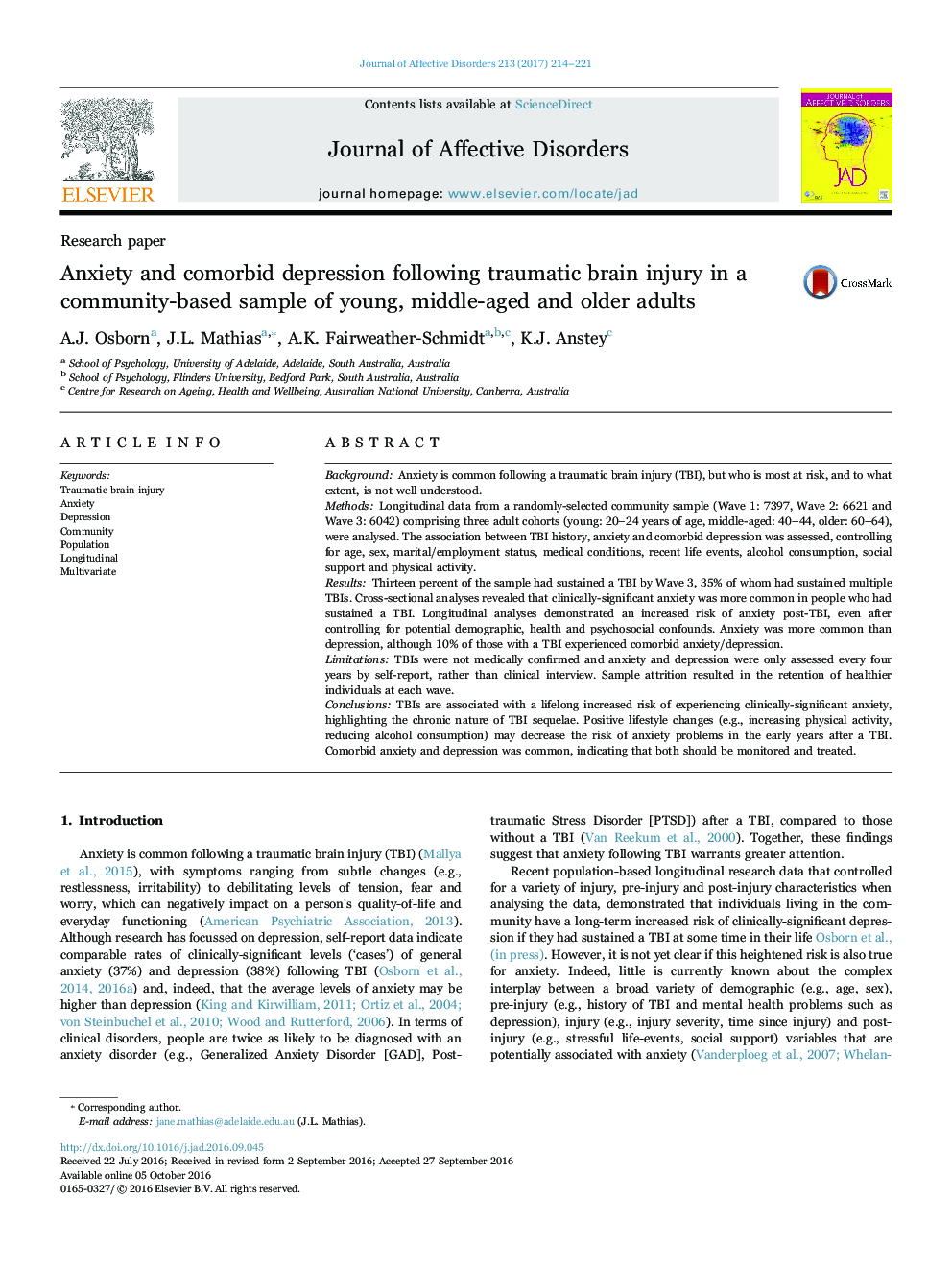| Article ID | Journal | Published Year | Pages | File Type |
|---|---|---|---|---|
| 5722250 | Journal of Affective Disorders | 2017 | 8 Pages |
â¢13% of an Australian population-based community sample had sustained a TBI.â¢Clinically significant levels of anxiety were more prevalent in those with a TBI.â¢Across adulthood, with confounds controlled, the risk of anxiety increased by 39%.â¢More 'cases' of clinically significant anxiety, than depression, were reported.â¢10% of those with a TBI experienced comorbid anxiety and depression.
BackgroundAnxiety is common following a traumatic brain injury (TBI), but who is most at risk, and to what extent, is not well understood.MethodsLongitudinal data from a randomly-selected community sample (Wave 1: 7397, Wave 2: 6621 and Wave 3: 6042) comprising three adult cohorts (young: 20-24 years of age, middle-aged: 40-44, older: 60-64), were analysed. The association between TBI history, anxiety and comorbid depression was assessed, controlling for age, sex, marital/employment status, medical conditions, recent life events, alcohol consumption, social support and physical activity.ResultsThirteen percent of the sample had sustained a TBI by Wave 3, 35% of whom had sustained multiple TBIs. Cross-sectional analyses revealed that clinically-significant anxiety was more common in people who had sustained a TBI. Longitudinal analyses demonstrated an increased risk of anxiety post-TBI, even after controlling for potential demographic, health and psychosocial confounds. Anxiety was more common than depression, although 10% of those with a TBI experienced comorbid anxiety/depression.LimitationsTBIs were not medically confirmed and anxiety and depression were only assessed every four years by self-report, rather than clinical interview. Sample attrition resulted in the retention of healthier individuals at each wave.ConclusionsTBIs are associated with a lifelong increased risk of experiencing clinically-significant anxiety, highlighting the chronic nature of TBI sequelae. Positive lifestyle changes (e.g., increasing physical activity, reducing alcohol consumption) may decrease the risk of anxiety problems in the early years after a TBI. Comorbid anxiety and depression was common, indicating that both should be monitored and treated.
